Ikkei Tamaki
出生 : 1908-06-19, Wakayama Prefecture, Japan
死亡 : 1970-10-29
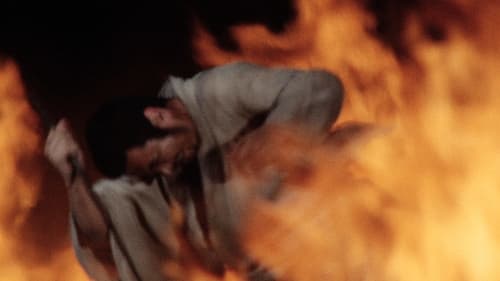
Zatoichi is mentored by the blind leader of a secret organization as he contends with both the Yakuza and a jealous husband.

Kawachiya Yohei
One murky night, Soetsu, a blind acupuncturist and money lender, calls on Shinzaemon Fukami, a Hatamoto samurai, to collect some money. But Fukami is too busy having an affair with a maid and curtly tells Soetsu to ask Sawano, his wife, for the money. As they have no money, Sawano interprets her husband's words as telling her to give herself to Soetsu in lieu of payment. However, Fukami catches them in the act and kills them both. Snatching up Soetsu's money bag with 30 ryo in it, he then asks two ruffians, to sink the bodies in a marsh. From what follows, it seems as if the spirits of Soetsu and Sawano are still hovering on earth in anguish and anger. For soon afterwards, Fukami is found dead by his own hand and Osono, Soetsu's younger daughter, suddenly disappears from home.

A coward boy fencer becomes invisible and matchless through a magic pill.

Story about a big boss who built the foundation of an industrial city.

Goda Jinzaemon
「東海道お化け道中」の浅井昭三郎が脚本を執筆し、「笹笛お紋」の田中徳三が監督した妖怪もの。撮影は「刑務所破り」の今井ひろしが担当した。

The tragic, yet exciting story of the friendship between Nakayama Yasubei, a member of the 47 Ronin, and Tange Tenzen, a relative by marriage of the vile Lord Kira. Remake of Hakuôki AKA Samurai Vendetta (1959).

Set up to be the patsy by a rival gang, Furuta Makoto attacks the yakuza boss he thinks is responsible for his father’s murder. He then learns it was all a plot to take over his father’s turf and he seeks vengeance against the puppet master behind the entire conspiracy. His quest for justice leads him to prison where he must fend off the attack of a master assassin before he can make his escape and go after the true killer!
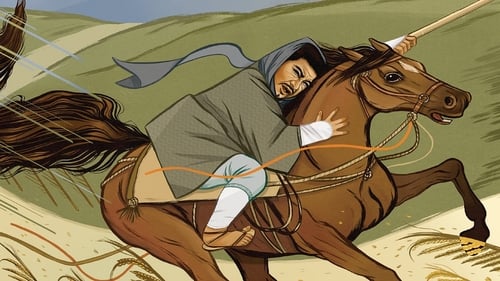
Aburaya no Banto
Zatoichi is forced to kill a young man who owes a debt to a yakuza boss. Moments later, his sister Osode arrives with the money she earned (prostituting herself) to pay his debts. The bosses true motives are revealed and he attempts to steal Osode even though the debt is paid. Zatoichi realizes his grievous error and protects the girl from the gang. Osode and Zatoichi are caught in a dilemma as she must rely on her brother's killer for protection and Zatoichi wrestles with the injustice he has caused.

It’s cross and double-cross in these further adventures of Ryuzen, the wayward priest played by Katsu Shintaro as he tries to help a woman who may be the heir to a fortune get what is rightfully hers. Matsuo Kayo, who first rose to international stardom as ‘the supreme ninja’ in “Shogun Assassin” gives an outstanding performance in this clever and exciting caper tale set in the samurai era. Ryuzen agrees to help her, but is he just in it for himself, and is she really who she claims to be? When they come up against Boss Tobei it’s a virtual free-for-all as everyone struggles to walk away with a fortune in gold!

The film portrays a satirical view of today's heartless money-oriented society.

Isazo is a traveling gambler and living legend in the world of yakuza, known for his swordsmanship and bravery, his impeccable manners, and his brilliant talent in gambling. One late fall at an inn in Kiso Fukushima, Isazo befriends a young boy whose mother turns out to be his old love Yoshino, with whom he was not unable to consummate a marriage due to the class differences between them.
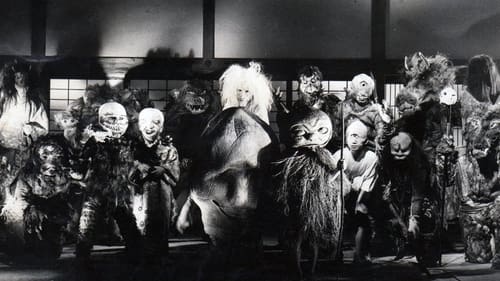
Village Headman
大映「妖怪」シリーズの第一弾。一つの怪談を語るたびにロウソクを消していく"百物語"から物語は始まる。悪徳商人・但馬屋が、長屋と氏神の社殿を取り壊して女郎宿を作る計画を立てた。長屋の住人は反対するが、悪代官と結託した但馬屋は強引に計画を進める。
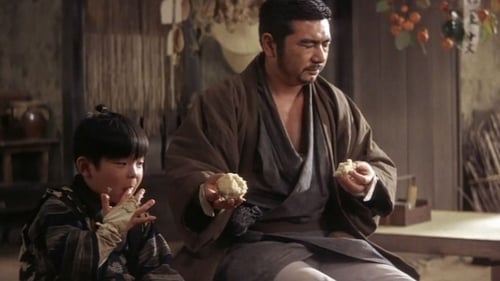
シリーズの第17作で、後に「ブラインド・フューリー」としてアメリカでリメイクされた。座頭市は、旅先で出会った瀕死の女性からその幼い息子を彼女の夫の庄吉に届けるよう頼まれる。彼女の死後、市は少年と目的地へ。途中、謎の男、赤塚多十郎と出会うが、その素性は公儀隠密だった。悪代官やヤクザに監禁された庄吉を救うべく、立ち上がる市だったが、友情で結ばれかけた赤塚と、ある事情から一対一の対決に迫られることに...。

The first film in the 2 part series about Ryuzen, a renegade martial-arts priest who, in addition to breaking all the commandments against sex and gambling, opens his own gambling den in direct defiance of the local yakuza boss. Exciting action and a twisty plot this movie breaks new barriers in Japanese cinema. Katsu Shintaro is superb in one of his better non-Zato Ichi roles as he fights off the advances of a love-lorn woman and risks his life to defeat the powerful gambling boss who has a stranglehold on the town.
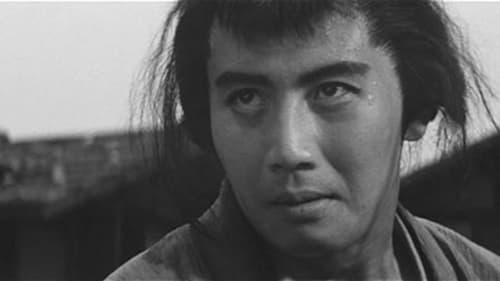
A naively honorable samurai (played by Raizo) comes to the bitter realization that his devotion to moral samurai principles makes him an oddity among his peers, and a very vulnerable oddity in consequence. He takes the blame for the misdeeds of others, with the understanding that he will be exiled for one year and restored to the clan's good graces after the political situation dies down. As betrayal begins to heap upon betrayal, he realizes he'll have to live out his life as a master-less ronin, if not hunted down and killed.
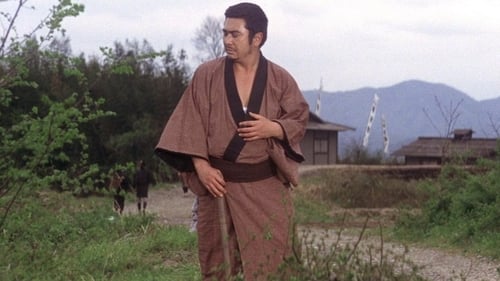
Kinbei
Zatoichi comes upon a dying man who asks him to give a bag of money to "Taichi". Zatoichi has no idea who this is but when he comes upon a small town harassed by gangsters, he finds that "Taichi" was the man's young son. Along his travels he also met a blind monk who makes Zatoichi question his murderous lifestyle. In trying to help the town, Zatoichi kills some gangsters and becomes a hero to the boy. He must make a choice of whether to use non-violence and set a good example, or violence and set the boy on the wrong path in life.

Tsuzaki Taichiemon
斑平は中老の母と犬との人獣交婚の犬っ子と蔑まれる、生まれながらの疎外者だった。花造りの名人でありながら、馬よりも速く駆ける健脚と居合を見込まれた彼は、お家改易を狙う幕閣が放つ公儀隠密を斬るよう命じられる...。「斬る」「剣」に続く三部作の最終作。
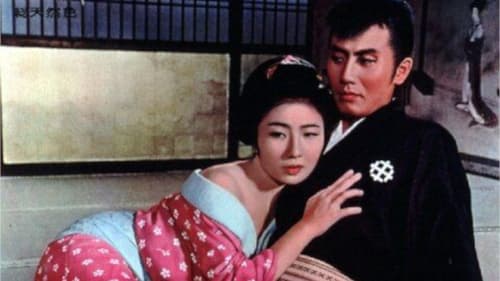
柴田錬三郎の原作を「眠狂四郎円月斬り」の星川清司が脚色「座頭市あばれ凧」の池広一夫が監督した眠狂四郎シリーズ四作目。撮影もコンビの竹村康和。
狂四郎は隠れキリシタンの飾り職人・鳥蔵から志摩を守ってほしいと頼まれる。

A wandering gambler strolls into a village searching for his father's killer, unaware that the village is run by criminals who sell the poorest peasants into slavery.

A decapitation at the hands of the shogun's monstrous misbegotten son kicks off the action and draws nomadic Nemuri Kyoshiro (Raizô Ichikawa) into more sword-fighting adventures when he's blamed for the beheading. Meanwhile, the head-chopper's mother is busy knocking off the shogun's lawful heirs to secure the shogunate for her son.

Wandering samurai Nemuri Kyoshiro (Raizô Ichikawa) finds a bulls-eye on his back after befriending the shogunate's tightfisted financial adviser, Asahina, who's earned the wrath of the shogun's self-indulgent daughter for cutting off her allowance. The enraged princess promptly hatches a scheme to have Asahina bumped off -- along with his protector, Kyoshiro. Shiho Fujimura also stars in this installment of the enormously popular film series.

советник
Yoso is truly a lost classic, set in the Nara Era (710-794), from Kinugasa Teinosuke the same writer/director who gave us the recognized classic Gate of Hell (Jigokumon, 1952) & the milestone silent surrealist masterpiece A Page of Madness (Kurutta Ippeji, 1926).
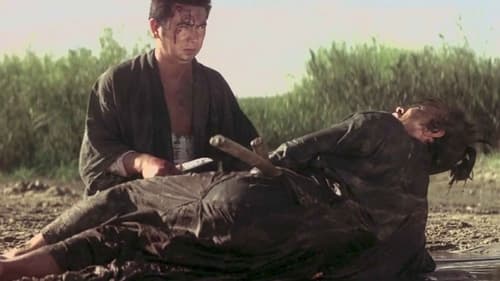
人気痛快時代劇シリーズの第4作。上州・下仁田にやってきた座頭市。折しもその地では、地元の若い親分・佐吉の二代目の襲名披露が近く行なわれようとしていた。市が投宿した旅籠の娘のぶは、佐吉と恋仲にあったが、のぶの養父・島蔵は、かつて先代の親分と諍いを起こした末、やむなくカタギの旅籠の主人となった過去の宿縁があり、今なおやくざ渡世に未練を残していた。矢切の東九郎は、そんな島蔵をたきつけて、佐吉の襲名披露を兼ねた花会を邪魔しようと企む。
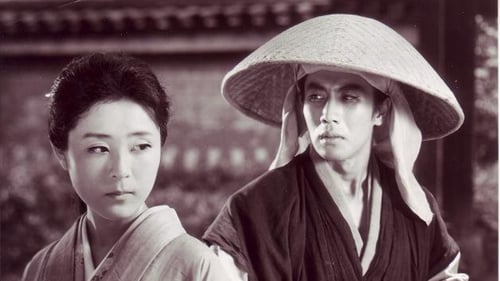
[Period covered: 1582-1594]. As the film opens, the warlod Nobunaga Oda rides to Iga Ayanokuni shrine. He is asked if he thinks he has destroyed all the ninja who opposed him and answers that he suspects that there may be more. A servant brings water and tests it first. The paige dies and we hear gunshots as two ninja flee the scene. His suspicions confirmed, Nobunaga oversees the execution of captured ninja and decides that, in the future, he needs a much crueler method of execution. The daimyo Hideyoshi comes to visit.

Nagasaki at the end of the Edo period had the taste of a criminal paradise, where, despite the exotic, dangerous work was always in demand. Here, three wandering samurai who earn their living by killing get to know each other. Soon they learn that government officials will be transporting a large cargo of gold and decide to steal it.
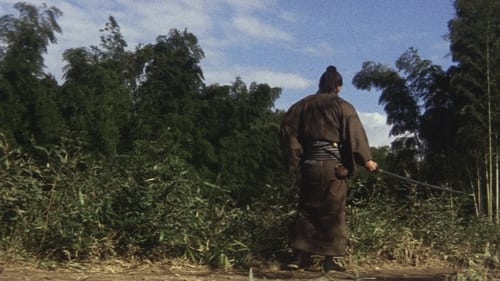
Tokuemon Kadoya
As winds of change sweep Japan, an honest man joins the Shinsenhumi out of admiration for its leader and because he wants to live and die as a samurai. However, as his involvement grows, reality and idealism come into deadly conflict.
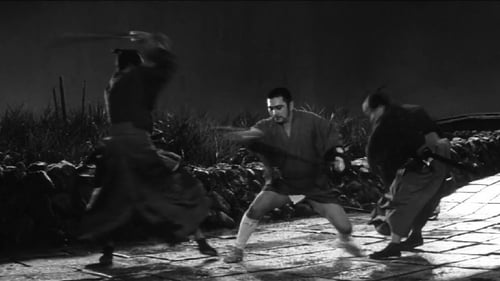
Returning to the village where a year before he had killed Hirate, a much-admired opponent, Zatoichi encounters another swordsman and former rival in love.

The son of an executioner and the assassin he loved yet murdered learns of his origins, leaving his foster parents to avenge his mother's death.

Man in crowd 2
釈迦の生誕から入滅までを壮大なスケールで描いた歴史スペクタクル。世を憂えて修行の道に入ったシッダ太子は、悪魔の誘惑を退けついに悟りを開く。だが彼に嫉妬するダイバ・ダッタは、バラモンの法力を以て、シッダ太子と仏教徒を様々な方法で迫害していくが......。

Disguised as a beggar monk, Ryunosuke is harassed along the road by the rowdy members of a country dojo or fencing school malingering outside their fencing hall. The third film in the Satan's Sword trilogy.
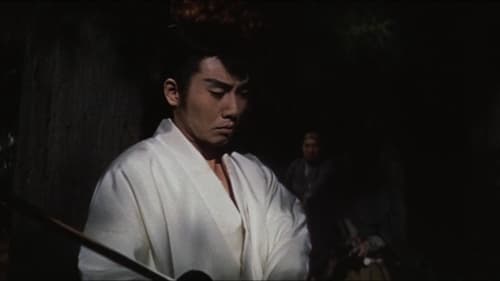
The sequel to Daibosatsu tôge (1960) and the second of the trilogy follows the adventures of Ryunosuke Tsukue after he is blinded.

This is the story of a blind masseur who tricks people, steals, and kills; he is the anti-Zatoichi

The exciting story of Jirocho and his yakuza gang that controlled the area of the Tokaido during the latter days of the samurai era. Awesome fighting from Katsu Shintaro as One-Eyed Ishimatsu highlights this great tale taken from Japanese history!
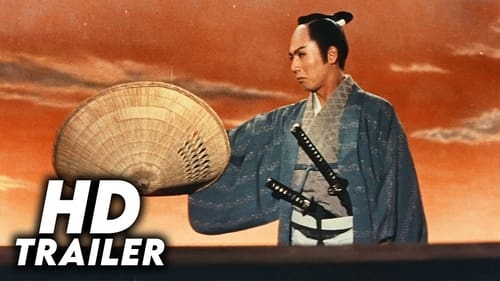
Two amiable samurai wind up on opposite sides of the vendetta between Lord Asano's retainers and the family of Lord Kira that led to the famous revenge of the 47 Ronin.

Saigû Honda
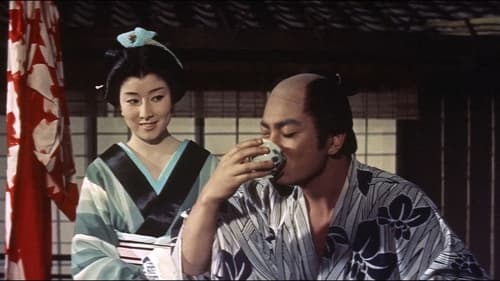
Legendary yakuza Shimizu Jirocho and his 28 henchmen travel the unruly path from a 'Fire Festival' in Akiba to a decisive battle by the Fujigawa.

Film directed by Kenji Misumi.

Last part of the Snake Woman trilogy.

Suzunosuke faces perhaps his wildest foes. This evil gang is lead by a one-eyed birdman and other demonic creatures.

One of Japanese folklore's most popular characters is brought to life on the silver screen in this terrific version of legendary Demon slaying Peach Boy.
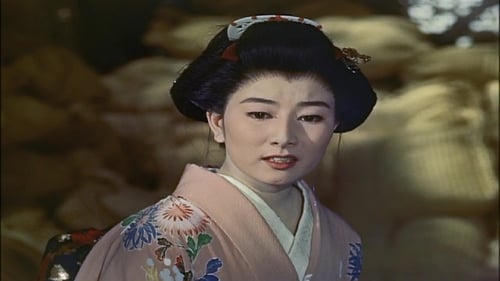
From the pen of Yoshikawa Eiji comes this exciting story. The Naruto Strait separates Tokushima from the islands of Awaji and Honshu. On Tokushima the mad lord dreams of conquest and forges a bloody revolt against the Tokugawa shogunate. A mysterious swordsman named Noriyuki Gennojo has crossed Naruto’s waters to uncover the Awa clan’s secrets. He puts his life on the line after finding a testament of Awa’s secrets, written in blood by a dying man. Joining Noriyuki are a female ninja who loves him, and the beautiful daughter of an enemy who’s sworn to kill him. Awa’s defenders willl stop at nothing to prevent the blood-soaked letter from reaching the shogun.
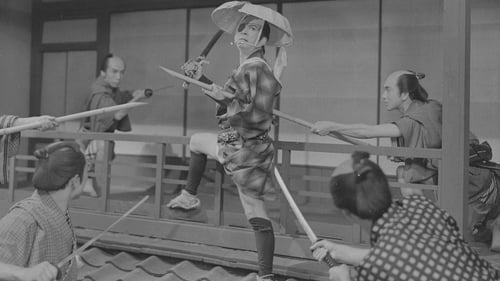
Big Masa
Ishimatsu of Mori, from his early days leading up to his joining with Shimizu Jirocho, Boss of the Tokaido where he made his mark in history through his tragic end this is the story of a beloved and loyal henchman.

A poor peasant, after years of scraping, becomes a rich and powerful Osaka merchant. Mizoguchi Kenji's final project; he died before completing it and directing duties turned over to Yoshimura Kozaburo.

Film adaption by Kenji Misumi
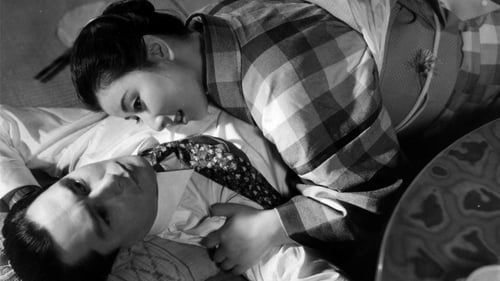
In Kyoto a young kimono maker with traditional ideas gets involved with a married professor.

Early film by Kenji Misumi.

It is brother against brother in this tale of love and betrayal within the famed Yagyu clan. In one of their earliest films together, superstars Ichikawa Raizo and Katsu Shintaro are magnificent as the two finest young swordsmen in the clan. As they vie for the hand of a beautiful woman their loyalty comes into question during an attack on their lord. When one of them masters the secret technique taught to him by Miyamoto Musashi, it leads to bloody violence that can tear the clan apart! Filled with superb swordplay this rare classic is not to be missed!
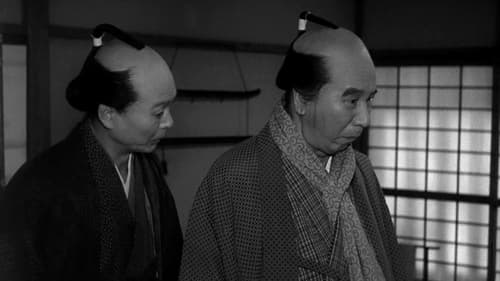
Jushiro Umegaki
In 17th century Kyoto, Osan is married to Ishun, a wealthy miserly scroll-maker. When Osan is falsely accused of having an affair with the best worker, Mohei, the pair flee the city and declare their love for each other. Ishun orders his men to find them, and separate them to avoid public humiliation.


The Great White Tiger Platoon was part of the Aizu clan's last ditch efforts to stop the advance of Imperial troops after the fall of the Tokugawa Shogunate. Meant to be a reserve unit as it was made of the young, 16-17 year old sons of Aizu samurai. Their story is one of the great tragedies of the Boshin War (1868-1869) as they were called into action. Getting cut off from the main body of their platoon, a group of 20 from the 2nd squad retreated to Iimori Hill, where they looked down upon fires surrounding Aizu Castle and thinking that the castle has fallen and all is lost, they choose to die as samurai by committing seppuku. A superb rendition of this true story that shows the true honor of the samurai.
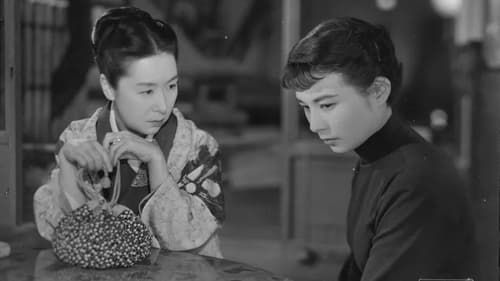
Kodama
Yukiko's fiance learns her mother runs a geisha house and ends their engagement. She despises what her mother does until one of her clients shows interest and starts to woo her.
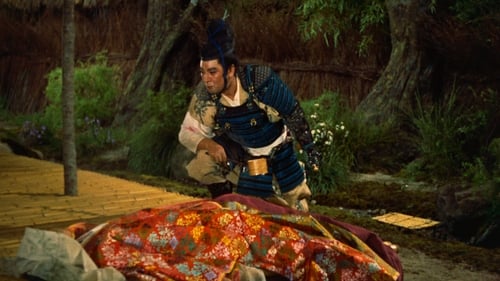
Nariie
Japan, 1159. Moritō, a brave samurai, performs a heroic act by rescuing the lovely Kesa during a violent uprising. Moritō falls in love with her, but becomes distraught when he finds out that she is married.
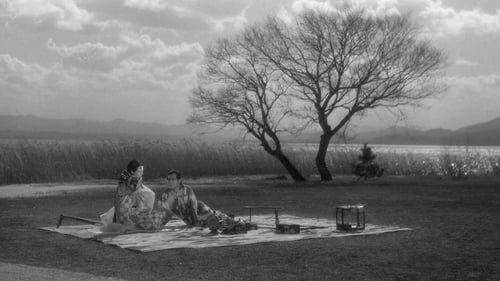
Villager
戦国の世、貧しい陶工・源十郎が若狭姫という女性と知り合い、生活をともにするようになる。だが美しい若狭姫の正体は死霊であった。それを知った源十郎は若狭姫を捨てて故郷に逃げるが、彼女の怨念は執拗に追いすがる……。「雨月物語」をベースに、川口松太郎らが脚色。

A woman loses her son through an evil conspiracy and commits suicide. Shortly afterwards a ghost cat begins haunting the conspirators. This is Takako Irie's first bakeneko (ghost cat) movie; it started a Daiei cycle which was very popular at the time in Japan.

Story of a Beloved Wife is an autobiographical work based on Shindo's first marriage. Jūkichi Uno stars as a struggling screenwriter, and Nobuko Otowa stars as the wife who supports him through his early struggles.

Jewel thieves become interested in an invisibility formula invented by Professor Nakazato and want to use his invention to acquire a diamond necklace called the "Tears of Amour."

Jida-geki by Santaro Marune.

A Japanese film.










































